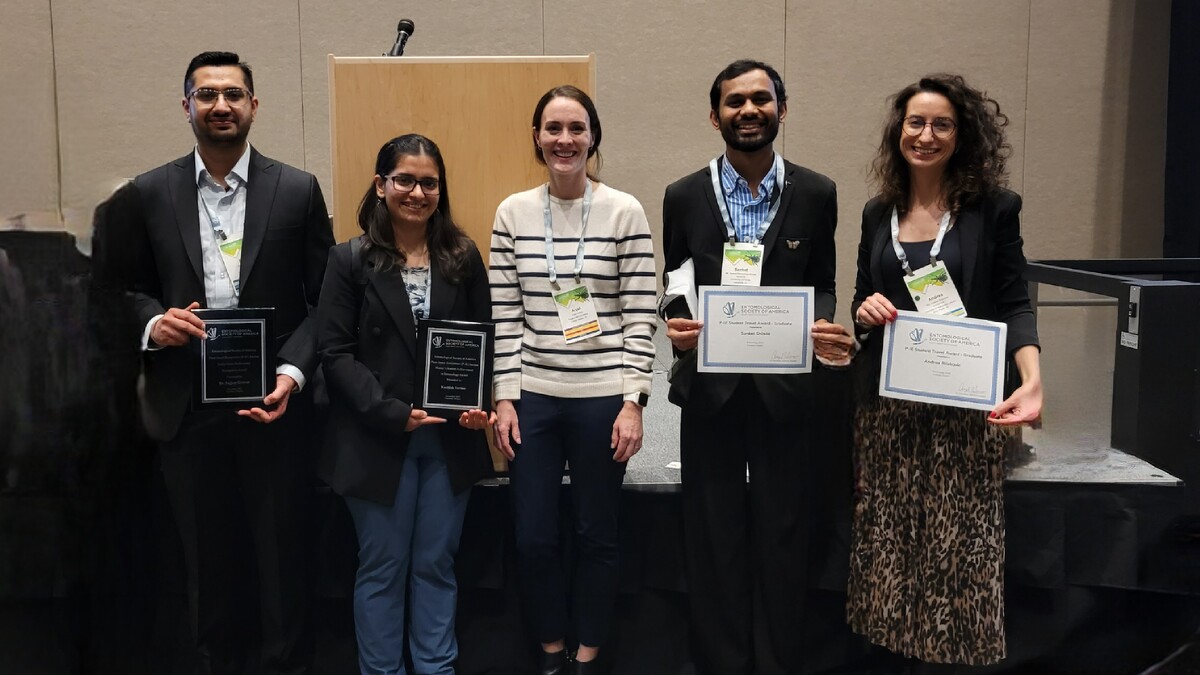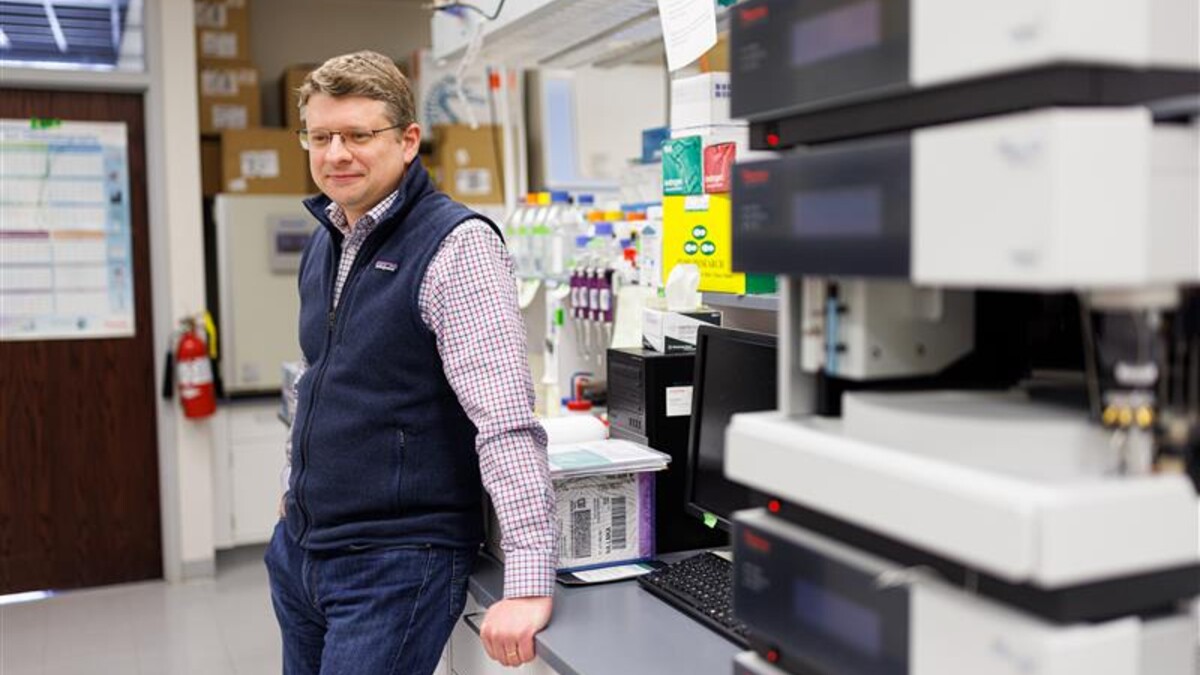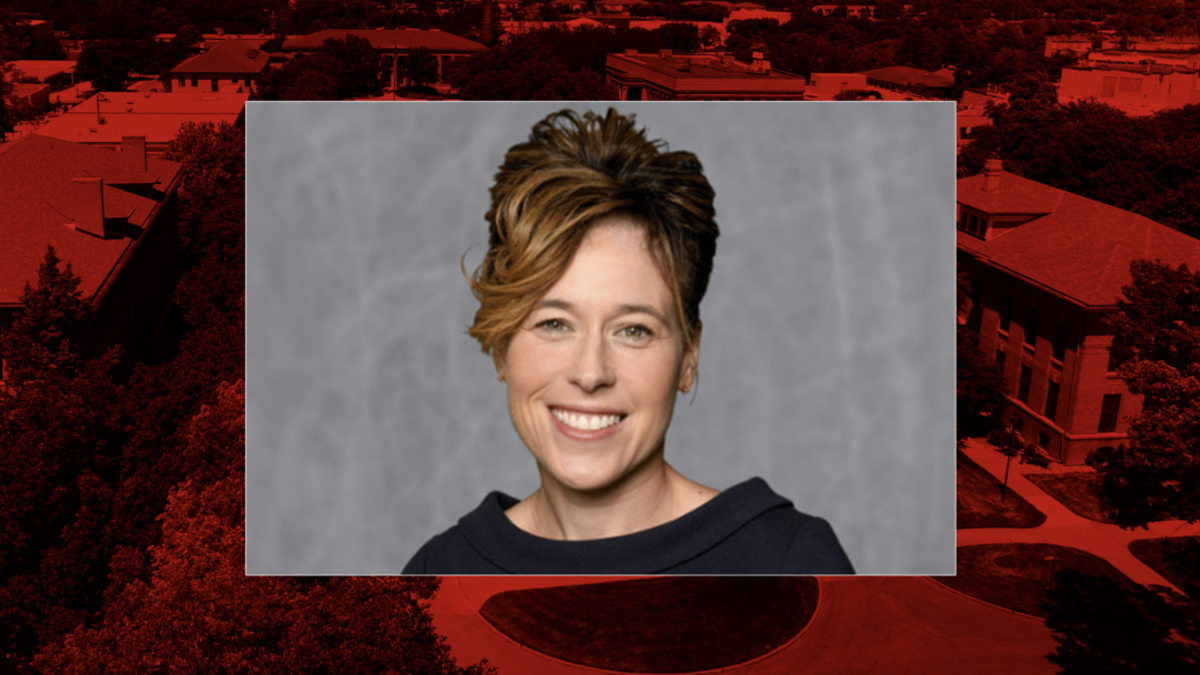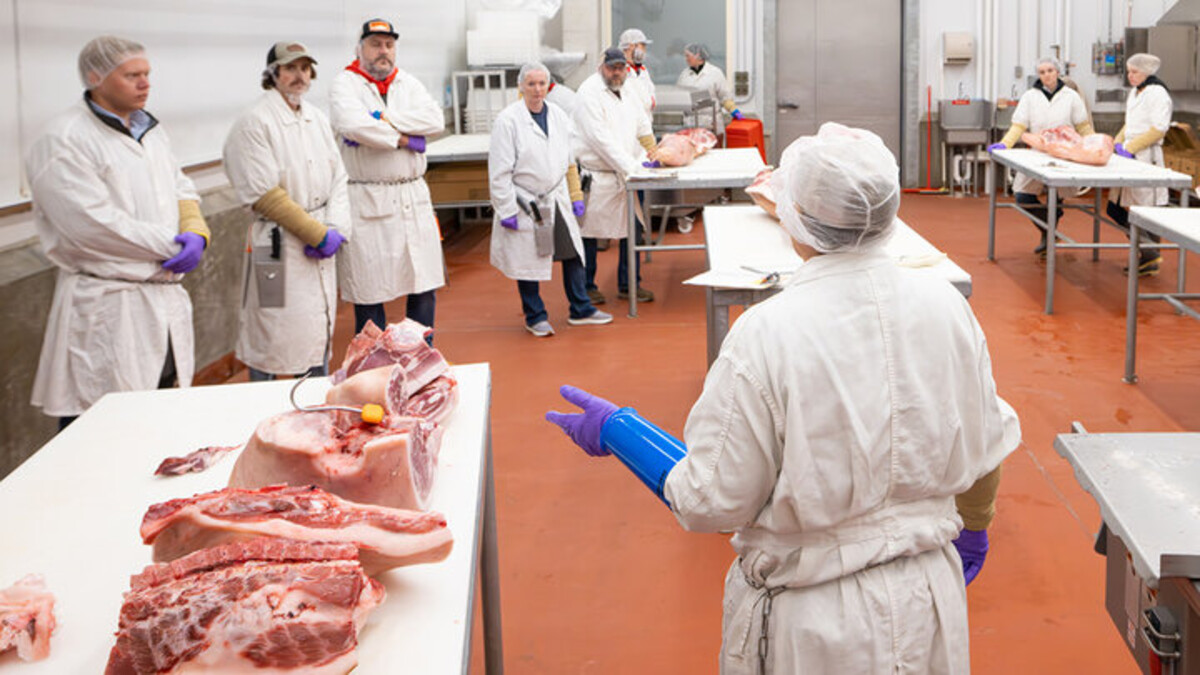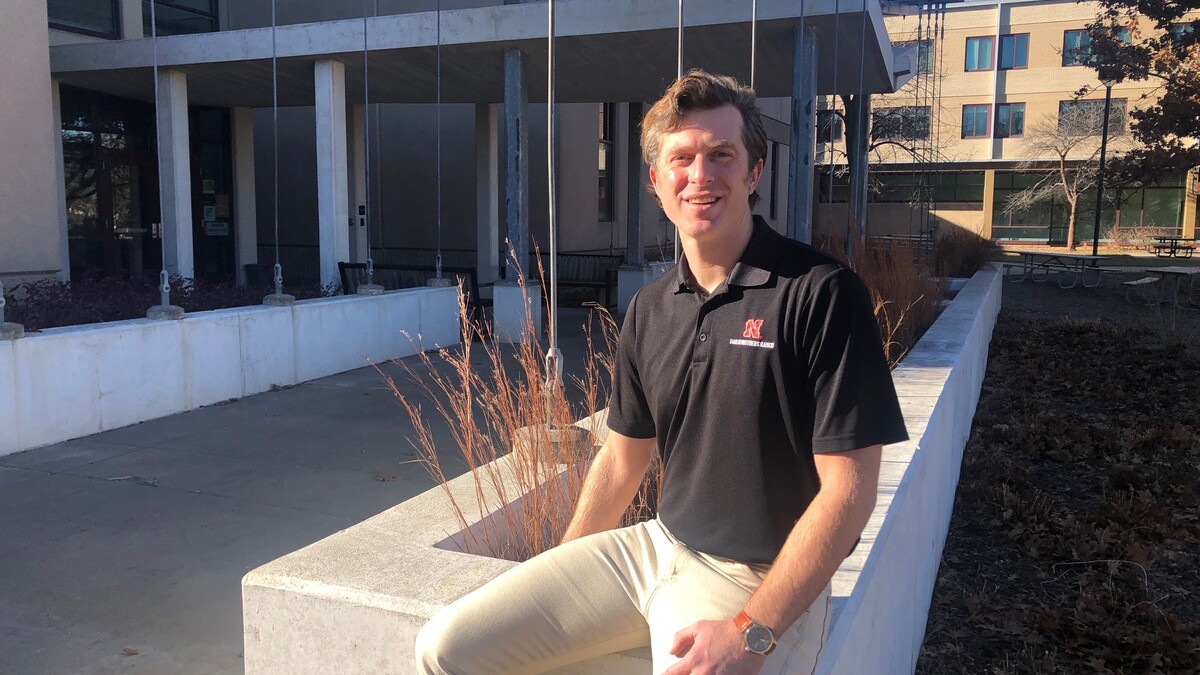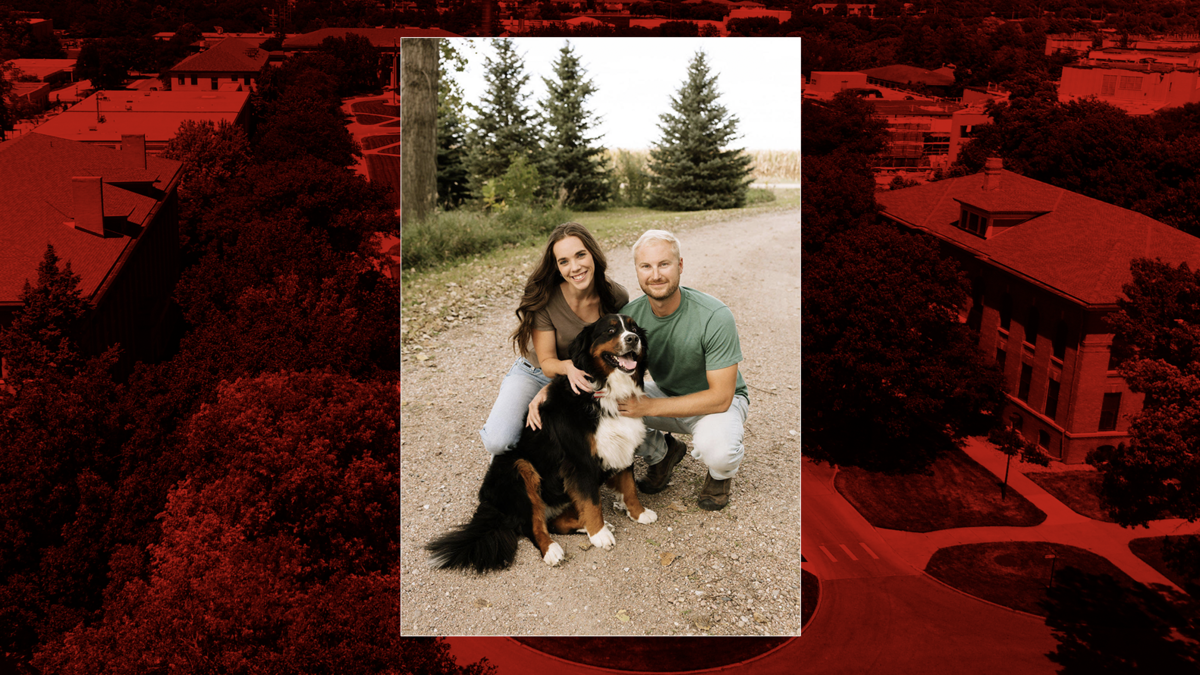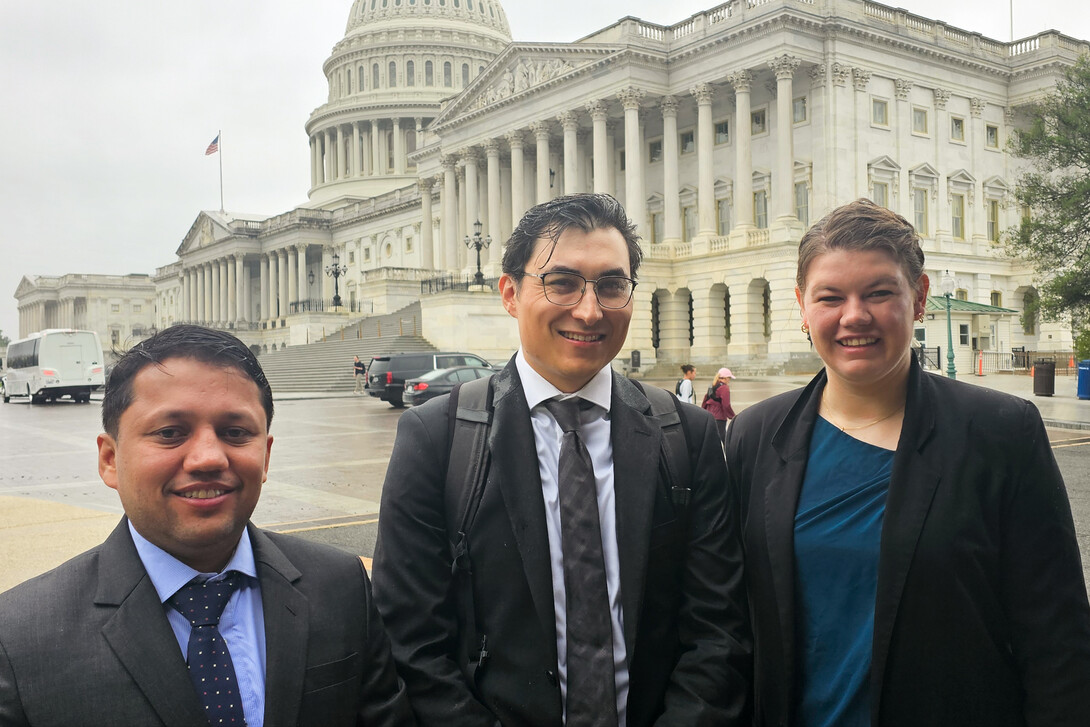
Sara Brock-Contreras, a doctoral student at the University of Nebraska–Lincoln, represented Nebraska in Washington, D.C. while advocating for science funding September 9-10, 2025.
Funded by the American Geophysical Union, the two-day trip brought in Brock-Contreras and 32 other earth and space scientists from around the country as experts during the Geosciences Congressional Visits Day. She asked the legislators to support the Safeguard America’s Leadership in the Earth and Space Sciences bill, with the highest appropriations for science in the House and Senate fiscal year 2026 appropriations bills. On Sept. 23 she received notification that the bill had passed the House.
She also spoke in meetings about the Weather Act Reauthorization Act that Republican Rep. Mike Flood of Nebraska was cosponsoring. While Brock-Contreras met mostly with legislative aides for approximately 20 minutes, Flood’s legislative director, Evan Dean, spent about 30 minutes with her.
“He was already very familiar with the Know Your Well program that I run, and I think that's due to the work that Ann Briggs and Chittaranjan Ray do with the Nebraska Water Center,” she said.
The act passed through the House Science, Space, and Technology Committee while Brock-Contreras was in D.C. and will be brought to the House floor for a vote.
Brock-Contreras also spoke with legislators about the Relieving Economic Strain to Enhance American Resilience and Competitiveness in Higher Education and Research Act (RESEARCHER Act), aimed at studying how funding availability affects graduate students and postdoctoral researchers and the resulting STEM workforce.
As the only scientist representing Nebraska, Brock-Contreras had been placed on a team with two scientists from Wyoming. They met face-to-face with Republican Sen. John Barrasso of Wyoming, and she said that was a pleasant surprise. She had been prepared in the Sept. 9 workshops for limited time with policy makers.
“One of the key things that they talked about when doing the science policy messaging--and I had a little bit of this when I volunteered for a science policy action group in my undergrad--but it's ‘Focus on the policies. Keep the politics out of the policies. Keep the politics out of the messaging,’” she said.
She focused on showing how cool her work was, she said, and how policy makers could support that by authorizing programs or appropriating funds. She said the meetings were productive and she learned much from the experience.
“It definitely gave me a lot more respect for and insight on how they draw storylines and make decisions with all of that information coming at them,” she said. “Those staffers are just incredibly knowledgeable. And usually, they were very, very interested in hearing about our research and what we want to do. But yeah, how do you take all that and make a decision from it? How do you take all that and then go to a 100-person or 435-person body and get all those people then to agree on a decision?”
From one workshop panelist, she learned logic does not always prevail but that people need to be satisfied with small wins. She said the whole experience will affect the way she communicates with members of Congress and their staff.
“They want to be part of a conversation, but I also need to be prepared with a 25-word, punchy, to-the-point story-ask and thank-you so that I can take 30 seconds of their time and then get out of their way so they can go to their next thing, but also somehow be memorable as I'm the middle of all the meetings they've had that day,” she said.
Brock-Contreras’s doctoral research looks at how people engage with science and make decisions from that engagement. She said, through policy, she would like to make science accessible to everyone, stating plans to look into the American Geophysical Union’s Local Science Partners, a program at the state level, which she expects to be more her speed.
“Those D.C. people have a lot of energy, and I was wiped after I came back,” she said. “Again, because the focus was on the policies, and I felt like I could have productive conversations and not have politics, left versus right, hanging over my head, it was really fun to work with people. And that's always just been the dream, is, ‘How can I work with as many people as possible to make the world a little bit better place?’”
